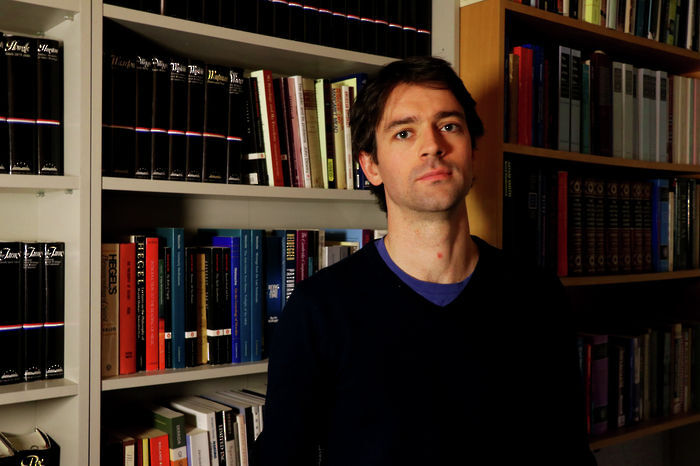Everything you need to know about the UCU staff strikes
Academics and staff at 61 universities nationwide will strike this month – how will this affect Cambridge students?

On Monday, the UK’s largest higher education union confirmed that 14 days of “escalating strike action” will take place in February in institutions across the country. In Cambridge, 800 staff members are estimated to participate.
The strikes will occur over a four-week period, beginning with a five-day walkout from Thursday, 22nd February, to Wednesday, 28th February. The following two weeks will see four-day and five-day walkouts, respectively. The strikes will be the latest development in an ongoing dispute over proposed changes to staff pensions.
Who are the parties involved in the dispute?
- Universities and Colleges Union (UCU) – The country’s largest higher education union, the UCU represents university employees in national negotiations. The UCU is the organising body for industrial action in the tertiary education sector, having initially warned of possible strike action in November when the pension changes were proposed by Universities UK.
- Universities UK (UUK) – The representative organisation for UK universities, UUK, proposed alterations to staff pensions as a deficit-reducing measure, and have acted as the advocating body for employers in national-level negotiations.
- Universities Superannuation Scheme (USS) – A national pension scheme for employees in higher education at pre-1992 universities, the USS has recently experienced a growing deficit and rising costs. The UUK has cited a £12.5bn shortfall in the scheme as justification for the pensions changes, arguing that alterations to pensions are necessary to avoid diversion of funds from teaching and research. The UCU disputes the deficit figure as overly pessimistic.
Why are academics and staff striking?
Academics and staff who are members of the USS are protesting the recent changes to pensions proposed by the UUK last November.
The UUK proposals involve replacing ‘defined benefit’ pension schemes with ‘defined contribution’ pension schemes for incomes under £55,000. Defined benefit schemes provide a guaranteed income upon retirement, whereas the value of defined contribution schemes depend on returns from underlying investments in the stock market.
The UCU says that defined contribution schemes are riskier and less generous, citing analysis by actuarial consultants First Actuarial that staff could be as much as £200,000 worse off than under defined benefit schemes.
There is a sense of culmination in a seven-year pensions dispute in which “academics have been asked to make real compromises”, said Dr. James, a J. H. Plumb College Lecturer at Christ’s, in an interview with Varsity.
Despite a general reluctance among academics in taking strike action which may adversely affect students’ education, UCU members in Cambridge see the strike action as a necessary alternative “to accept[ing] an unacceptable proposal,” said James.
How will the strikes affect students?
Lectures normally taught by academics who are UCU members and are participating in the strike will not take place during the 14 days of industrial action. Because the strikes also include action ‘short of a strike’, picketing lecturers will not reschedule classes lost on strike days, and will refuse to cover classes.
Whether yearly examinations will include material missed during days of strike is unclear, given that Cambridge examinations are written by individual faculties.
In a statement to Varsity, the University of Cambridge said: “The University is considering a range of precautionary measures to minimise any disruption to its day-to-day operations.”
Lectures taught or covered by non-union members or those not on strike will go ahead during the days of industrial action, as well as any teaching organised by individual colleges. Because college teaching officers are paid by colleges which do not have a stake in national negotiations, union members are legally incapable of withdrawing their labour from teaching and research not paid for by the university.
CUSU Council recently voted in support of a motion backing industrial action taken by university staff, and have organised a rally in solidarity with UCU striking workers on the first day of strike action in February.
How did the pensions dispute escalate?
17 November 2017 — In order to mitigate the USS financial deficit, the UUK proposes replacing defined benefit pension schemes with defined contribution pension schemes. The UCU condemns the plan, and subsequently releases a ballot for strike action to its 40,000 members at universities across the UK.
22nd January 2018 — The UCU ballot results indicate overwhelming support for industrial action in which 88% of UCU members across the UK backed strike action, with Cambridge staff voting 89.4% in favour of striking. The ballot surpasses the legally required minimum turnout of 50% among eligible union members in 61 institutions nationwide.
23rd January 2018 — Talks between representatives from the UCU and the UUK reach a stalemate as both sides refuse to allow further concessions; the independent chair Sir Andrew Cubie sides with the UUK scheme.
29th January 2018 — The UCU confirms that the strikes will go ahead in late February in higher education institutions across the country.
 News / Cambridge academics stand out in King’s 2026 Honours List2 January 2026
News / Cambridge academics stand out in King’s 2026 Honours List2 January 2026 Interviews / You don’t need to peak at Cambridge, says Robin Harding31 December 2025
Interviews / You don’t need to peak at Cambridge, says Robin Harding31 December 2025 Comment / What happened to men at Cambridge?31 December 2025
Comment / What happened to men at Cambridge?31 December 2025 News / Varsity’s biggest stories of 202531 December 2025
News / Varsity’s biggest stories of 202531 December 2025 Features / “It’s a momentary expression of rage”: reforming democracy from Cambridge4 January 2026
Features / “It’s a momentary expression of rage”: reforming democracy from Cambridge4 January 2026











